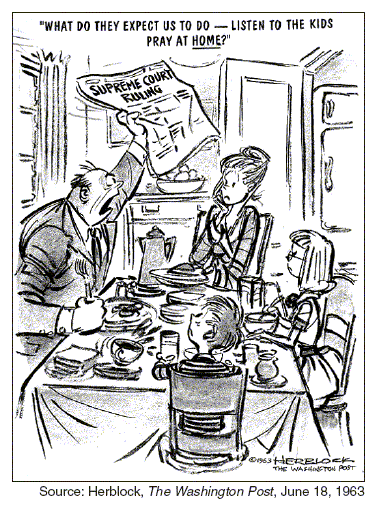“Seek Ye First the Kingdom of God”
Matthew 6–7
LDS manual: here
Purpose
To show that Christians and Mormons ignore the good advice in the Sermon of the Mount, and that it was assembled long after Jesus would have existed.
Reading
For this lesson, we continue our discussion of Jesus’ signature teaching: the Sermon on the Mount.
Before we do, though, here’s a helpful suggestion from the LDS New Testament Lesson Manual:
Suggestion for teaching: Stories can illustrate gospel principles and keep class members’ attention as few other teaching methods can…. When you tell a story, be sure class members understand whether it is a true account or a fictional story you have created to make a point.
That’s ironic, considering that the entire Sermon on the Mount was probably entirely made up decades later, but passed off as a true account. We’ll see some evidence for that in this lesson.
Main ideas for this lesson
Giving alms
Jesus had some pretty good advice about how to go about doing good works.
Matthew 6:1 Take heed that ye do not your alms before men, to be seen of them: otherwise ye have no reward of your Father which is in heaven.
6:2 Therefore when thou doest thine alms, do not sound a trumpet before thee, as the hypocrites do in the synagogues and in the streets, that they may have glory of men. Verily I say unto you, They have their reward.
Here are some Latter-day Saints ignoring Jesus’ advice and turning their humanitarian aid into a PR opportunity.
Not to carp too much; I’d rather they do good stuff than not. But according to Jesus, they have their reward, and it’s a yellow t-shirt. No one looks good in yellow.
Pray in closets
Back in my Utah days, my ward had a Gospel Doctrine teacher who thought that school prayer was the number one issue to help lift America out of its spiritual malaise. Young people aren’t praying to the Christian god? Give them a little inducement. Train up a child, etc.
Wonder how he thought that, given this scripture:
Matthew 6:5 And when thou prayest, thou shalt not be as the hypocrites are: for they love to pray standing in the synagogues and in the corners of the streets, that they may be seen of men. Verily I say unto you, They have their reward.
6:6 But thou, when thou prayest, enter into thy closet, and when thou hast shut thy door, pray to thy Father which is in secret; and thy Father which seeth in secret shall reward thee openly.
Whoops — this text is evidence that the Sermon on the Mount was written much later. People wouldn’t have been praying in the synagogues, because they weren’t used as houses of prayer until after the destruction of the temple in 70 CE.
And there’s another angle here: In the US Constitution, the Establishment Clause says that the government isn’t allowed to promote one religion over another. And that means that if Christians get to pray to their god in a government forum, then so does everybody else. Ceremonial deism cuts both ways.
But Christians haven’t been good at passing the mic. They’ve interrupted a Hindu priest,
a Muslim speaker,
and even an atheist invocation.
If only they’d believed their own Bible, they wouldn’t have opened this can of worms.
My favourite group, though, is the Satanic Temple. When Christians handed out Bibles in Florida high schools, they handed out the Satanic Children’s Big Book of Activities. (PDF)
I can’t put it better than this:
According to Satanic Temple spokesperson Lucien Greaves, the organization “would never seek to establish a precedent of disseminating our religious materials in public schools because we believe our constitutional values are better served by respecting a strong separation of Church and State.”
That being said, “if a public school board is going to allow religious pamphlets and full Bibles to be distributed to students—as is the case in Orange County, Florida—we think the responsible thing to do is to ensure that these students are given access to a variety of differing religious opinions, as opposed to standing idly by while one religious voice dominates the discourse and delivers propaganda to youth,” he added.
And when there are Ten Commandments monuments on public land, they’re there to erect a statue to the god Baphomet. Won’t this look grand?
What I love about this is that it’s surgical. The only people who will be freaked out by this are those who are the intended target; everyone else will laugh up their sleeve. I don’t care much for Satanism, but I’m happy to throw them some dough if they’ll keep up their antics. Why don’t you? The membership cards are very becoming.
Lord’s Prayer
One of my favourite callings was conducting the Stake Choir. Once we did Duruflé’s Notre Père. (We may not have sounded as good as this choir.)
But some members were surprised that the text stopped here:
Et ne nous soumets pas à la tentation,
mais délivre-nous du mal.And lead us not into temptation,
but deliver us from evil.
One member asked, “What happened to ‘for thine is the kingdom, and the power, and the glory’?”
“Well,” I had to explain, “it appears that that part wasn’t in the original. It was added later.” Many members of the choir adopted grave looks, while a couple of others nodded reluctantly.
For so it would appear. The part of the Lord’s Prayer known as the Doxology does not appear in the earliest copies of the text. In fact, it’s the view of some writers that the entire Sermon was cobbled together from Jewish wisdom after the fact.
Consider the lilies
Here’s some really terrible advice: Don’t worry about your life.
Matthew 6:25 Therefore I say unto you, Take no thought for your life, what ye shall eat, or what ye shall drink; nor yet for your body, what ye shall put on. Is not the life more than meat, and the body than raiment?
6:26 Behold the fowls of the air: for they sow not, neither do they reap, nor gather into barns; yet your heavenly Father feedeth them. Are ye not much better than they?
6:27 Which of you by taking thought can add one cubit unto his stature?
6:28 And why take ye thought for raiment? Consider the lilies of the field, how they grow; they toil not, neither do they spin:
6:29 And yet I say unto you, That even Solomon in all his glory was not arrayed like one of these.
6:30 Wherefore, if God so clothe the grass of the field, which to day is, and to morrow is cast into the oven, shall he not much more clothe you, O ye of little faith?
6:31 Therefore take no thought, saying, What shall we eat? or, What shall we drink? or, Wherewithal shall we be clothed?
6:32 (For after all these things do the Gentiles seek:) for your heavenly Father knoweth that ye have need of all these things.
He’s having a go at the flowers now!
This scripture explains why Christians weren’t very popular in the early days; they were a bunch of starving nudists. Nobody likes it when a naked guy is hanging over your shoulder asking, “Hey, are you going to eat that?”
This scripture makes absolutely no sense in terms of how people should live their lives…
…but it makes a lot of sense if Jesus was a cult leader who taught that the world was going to end within the lifetimes of the people listening to him, which appears to be the case. We’ll be highlighting more examples throughout the New Testament.
And of course, this scripture contains another iteration of the worst advice in religion:
Matthew 6:33 But seek ye first the kingdom of God, and his righteousness; and all these things shall be added unto you.
Here again, religion claims its right to place itself first over family, over your life plans and goals, over your own thoughts, over everything. It’s obscene that some people accept this dominance.
The strait and narrow
Jesus admits that his mission is going to be a failure in numerical terms.
Matthew 7:13 Enter ye in at the strait gate: for wide is the gate, and broad is the way, that leadeth to destruction, and many there be which go in thereat:
7:14 Because strait is the gate, and narrow is the way, which leadeth unto life, and few there be that find it.
Every unpopular movement needs to explain its unpopularity. (Think conspiracy theorists or 21st century Marxists.) If what they’re doing is so obviously true, then why isn’t it obvious to everyone? The typical strategy is to blame people — or is that sheeple?
This ‘broad and narrow gates’ explanation is Christianity’s way of explaining its (then) unpopularity. That changed a bit when Christianity really took off, but the scripture is still there, and can now be used by unpopular Christian fringe movements (like Mormonism) as a way of making theselves feel better.
Ask: If God knew that most people would find destruction, and that all but a few people wouldn’t find life eternal, why did he create them?
Ask: Could he have created only the people that he knew in advance would make it, so that the rest wouldn’t be condemned to eternal isolation and/or torment? If so, why didn’t he?
Additional lesson ideas
The Lord’s Prayer as a linguistic tool
The Lord’s Prayer is fantastically useful to linguists. Because it’s been copied and translated so many times, it’s often used to compare languages, and track how they change over time. Here are some examples from English. And here’s how it probably sounded in Old English in the 11th century.
Ask: Can you recognise any of this text?
Even though it’s from over 1,000 years ago, there are times when you can still understand it, particularly if you know the text well in Modern English. Notice also how “give us this day” becomes “syle us to dæg”. The word syle would eventually become sell, but its meaning would change.
Vain repetition
This scripture concerns the language of prayer.
Matthew 6:7 But when ye pray, use not vain repetitions, as the heathen do: for they think that they shall be heard for their much speaking.
Ask: What phrases are you aware of that get repeated endlessly in LDS prayers?
Possible answers:
- Our dear Heavenly Father — specifically “dear”
- That food may “nourish and strengthen our bodies” and “do us the good that we need”
- “Moisture”
Even Mormons are aware of these patterns. They’re not really a problem; they’re just cultural buildup that happens naturally as communities of humans share verbal behaviour.
The special language of prayer
The LDS Lesson Manual refers to a talk in which Dallin Oaks goes full linguistic prescriptivist.
Elder Dallin H. Oaks commented on the kind of language we should use when we pray: “The special language of prayer follows different forms in different languages, but the principle is always the same. We should address prayers to our Heavenly Father in words which speakers of that language associate with love and respect and reverence and closeness. . . . Men and women who wish to show respect will take the time to learn the special language of prayer”
(in Conference Report, Apr. 1993, 17, 20; or Ensign, May 1993, 16, 18).
Okay, so what kind of language is he recommending? Following the link to the conference talk, we see that God wants us to mimic obsolete 17th century Jacobean English, complete with thee, thou, thy, and thine.
Modern English has no special verbs or pronouns that are intimate, familiar, or honorific. When we address prayers to our Heavenly Father in English, our only available alternatives are the common words of speech like you and your or the dignified but uncommon words like thee, thou, and thy which were used in the King James Version of the Bible almost five hundred years ago. Latter-day Saints, of course, prefer the latter. In our prayers we use language that is dignified and different, even archaic.
The men whom we sustain as prophets, seers, and revelators have consistently taught and urged English-speaking members of our Church to phrase their petitions to the Almighty in the special language of prayer.
Wait; is Oaks unaware that the thee and thou forms weren’t historically formal — that they used to be informal, and they’ve only recently been reanalysed as formal? No, he’s aware.
The special language of prayer that Latter-day Saints use in English has sometimes been explained by reference to the history of the English language. It has been suggested that thee, thou, thy, and thine are simply holdovers from forms of address once used to signify respect for persons of higher rank. But more careful scholarship shows that the words we now use in the language of prayer were once commonly used by persons of rank in addressing persons of inferior position. These same English words were also used in communications between persons in an intimate relationship. There are many instances where usages of English words have changed over the centuries. But the history of English usage is not the point.
Scholarship can contradict mortal explanations, but it cannot rescind divine commands or inspired counsel. In our day the English words thee, thou, thy, and thine are suitable for the language of prayer, not because of how they were used anciently but because they are currently obsolete in common English discourse.
See there? Fancy-pants linguists can’t tell Oaks anything.
I watched this talk at the time, and I’d even done some linguistics. I watched open-mouthed as this guy made such a big deal about pronouns, and I thought: God has got to be bigger than this.
Ask: What issues might be more pressing in the church and in the world than the pronouns people use?
Consider: Latter-day Saints went to conference that day to listen to men who were uniquely in contact with a god. This god has all knowledge, and would be uniquely qualified to give insight on, and solutions to, pressing world problems. And when Mormons went to these oracles, what did they learn? The pronouns God wants people to use for him. How much more trivial could this be?
Consider also: This is a god who seems unconcerned when viruses mutate and flourish; when tsunamis, floods, and earthquakes kill thousands; when fundamentalists use his name to murder entire communities; when children are struck down with cancers — but you’d better mind your pronouns around him because that’s the kind of thing he really gives a shit about.
Ask: What function might this use of language serve?
Answer: Communities can mark themselves off as different by adopting idiosyncratic norms in dress, diet, and language. You can’t form a sense of difference by doing normal things — reality is equally available to everyone — so this is how they forge a common identity. Mormons’ insistence on antiquated language is the linguistic equivalent of everyone wearing old-style clothing or hats, and is one more example of religion’s typical conservatism.
It should also be noted that the moral sense of a religion is also antiquated, behind the times, and just generally stuck. Religions are not at the forefront of progress, whether ethical, linguistic, or sartorial. They trail, and must be dragged painfully along to be viable.






1 March 2015 at 5:21 pm
I thank thee for thy great paragraphs about pronouns, yea, and for thy weekly insights.
Verily.
15 March 2015 at 7:11 am
Back at thee, pal. Verily, thou knowest thy Jacobean English.